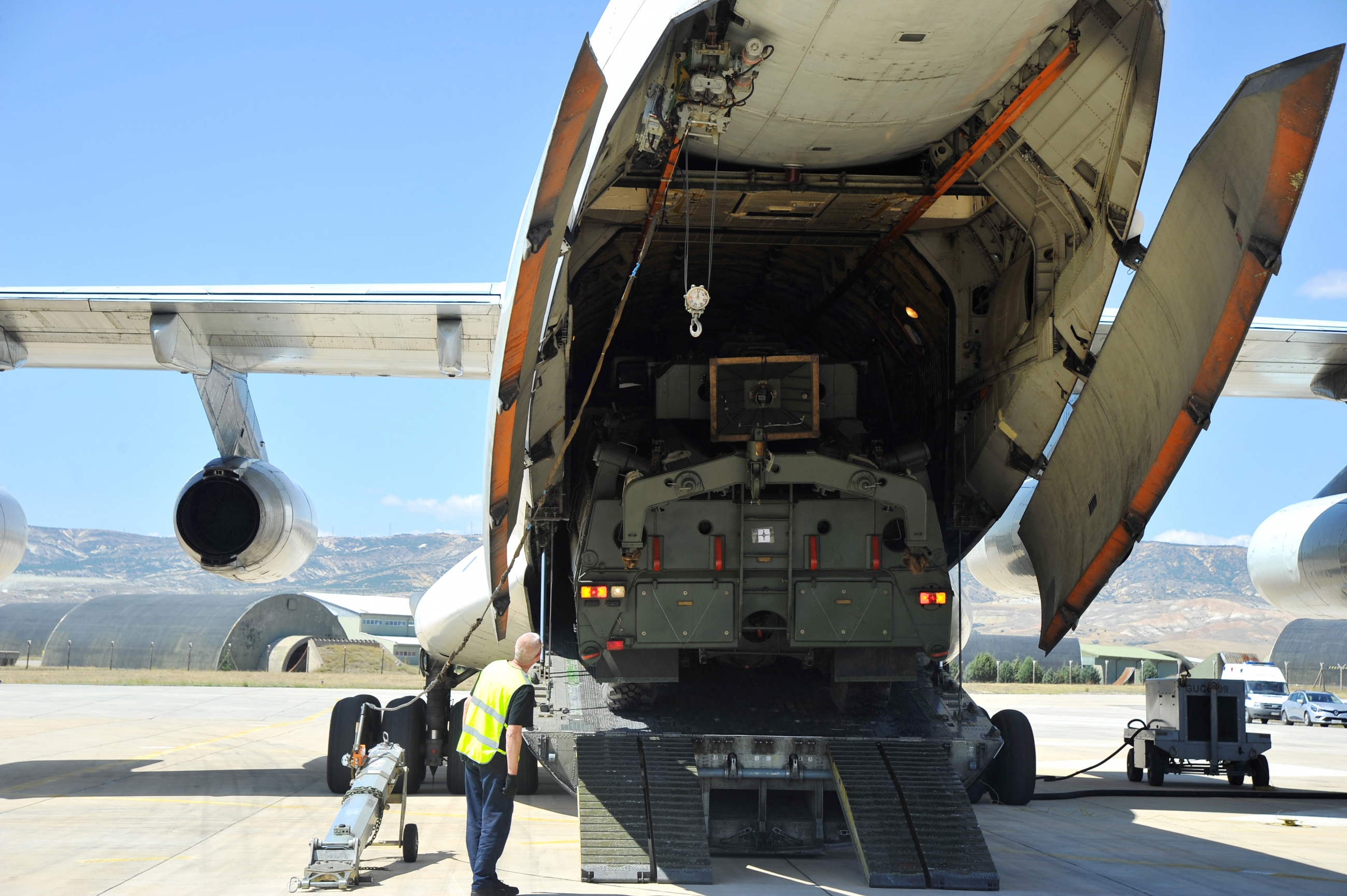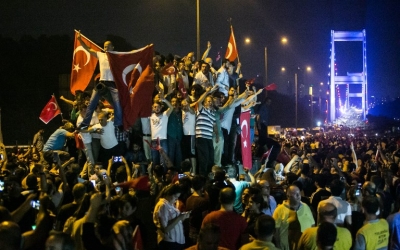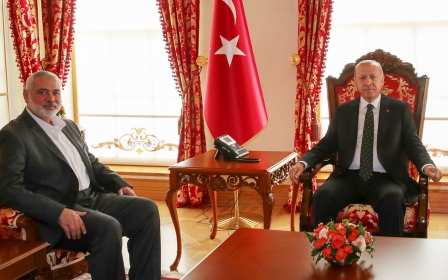Turkey proposes 'Greek model' to address S-400 missile crisis

Turkey signalled on Tuesday that it is ready to take a step back in its dispute with the United States over Russian-made S-400 missiles, and could agree to a model based on Greece’s ownership of S-300s.
Turkish Defence Minister Hulusi Akar said Ankara could activate the system from time to time based on particular occasions, rather than making it fully operational.
“We don’t need to use them all the time. We could use them depending on the threats,” he told a group of journalists in an interview published by multiple Turkish newspapers.
'We don’t need to use them all the time. We could use them depending on the threats'
- Hulusi Akar, Turkish defence minister
Akar used the “Crete model” to liken his proposal to how Greece operates the S-300 system, which Athens bought from Moscow in the 1990s after Ankara strongly pressured original owner Cyprus to relinquish it. Greece is currently using the system on the island of Crete during military drills or tests.
“We are open for negotiations based on the model used in Crete,” Akar said.
New MEE newsletter: Jerusalem Dispatch
Sign up to get the latest insights and analysis on Israel-Palestine, alongside Turkey Unpacked and other MEE newsletters
Turkey’s apparent concession comes after Washington imposed sanctions on Turkish officials in December under a US law that bars significant military transactions with Russia. Turkey was also removed from the fifth generation F-35 fighter jet programme by the Pentagon in 2019 due to concerns over possible Russian espionage through the S-400s.
New approach
Ankara is trying to find new ways to engage with the Joe Biden administration and have a good start with the newly elected administration. Biden emerged as a fierce critic of Recep Tayyip Erdogan in 2019 over Turkey's offensive against US-backed Syrian Kurdish armed groups and the Turkish president's domestic politics.
However, the new Turkish proposal could be construed as a setback for Ankara, as Donald Trump had actually issued a better offer in November 2019. The proposed deal only required keeping S-400s deactivated and in return promised Turkey’s return to the F-35 programme and the sale of US-made Patriot missile systems.
Erdogan at the time refused to deal because it had “preconditions” and he found a US requirement to send American military officials to inspect the status of S-400s from time to time as a violation of Turkey’s sovereignty.
Akar, in the interview, reiterated his proposal to establish a study group on the S-400 issue under Nato, a plan that has hit a brick wall with American officials several times. US Ambassador David Satterfield earlier this month once again rejected this idea.
Moreover, the National Defence Authorisation Act 2021, passed by the US Congress last year, requires Turkey to remove the S-400s from the Turkish territory to lift the sanctions imposed on Ankara, making it harder for both sides to address the issue.
Several Turkish sources said Ankara and Moscow have already completed their negotiations on the delivery of a second batch of S-400s, with just a final signature needed from Turkey to go forward with the purchase.
The deal puts Ankara in a tough position because Russia only agreed to Erdogan’s much-wanted tech transfer and joint production conditions for a second batch of deliveries, a senior Turkish official said.
Akar also said in the interview that the US must reconsider its partnership with the Syrian Kurdish People’s Protection Units, known as YPG, which took a leading role in the US-backed war on the Islamic State group (IS).
Ankara considers YPG part of PKK, a militant group that has waged a decades-long insurgency against Turkey and is designated a terror organisation by the US and EU.
“The most sensitive issue for us with the US is their support to PKK’s Syrian arm the YPG. We could find a solution for the S-400 issue through our conversations with the United States. However we cannot improve our relations with the US if we cannot find a solution for [YPG],” he said.
Middle East Eye delivers independent and unrivalled coverage and analysis of the Middle East, North Africa and beyond. To learn more about republishing this content and the associated fees, please fill out this form. More about MEE can be found here.





